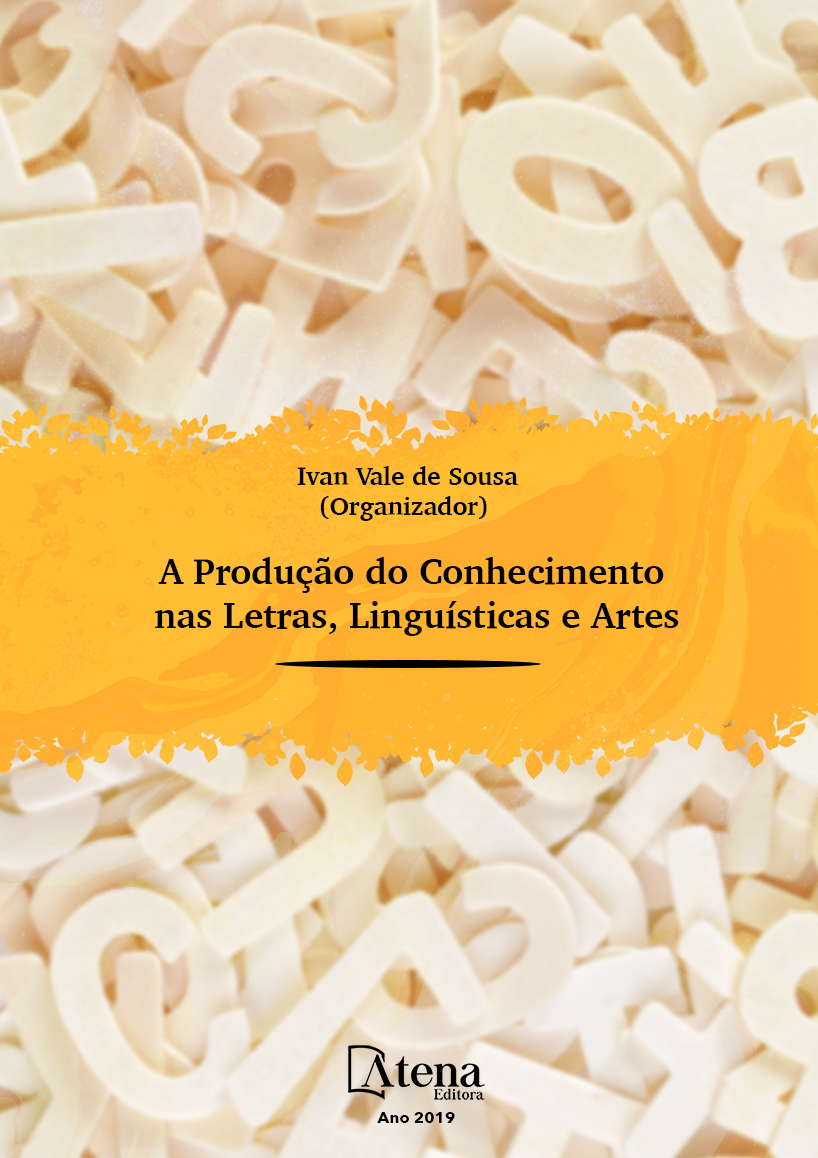
LITERATURA BRASILEIRA COMO INTERAÇÃO NO ENSINO DE PORTUGUÊS LÍNGUA ESTRANGEIRA
Neste estudo, o ensino de língua,
literatura e cultura decorre do texto, gênero
crônica, como meio de interação de ensinoaprendizagem de língua portuguesa. Tem por
objetivo oportunizar, aos discentes estrangeiros,
incursões sobre a literatura brasileira e
as ocorrências lexicais que designam a
culinária, com enfoque em designações e
em expressões linguísticas que nomeiam a
culinária maranhense; Trata também da relação
de saberes instituídos pelas designações da
culinária e de implícitos culturais relativos às
raízes históricas transmitidas e amalgamadas
por grupos sociais distintos, que contribuíram
com hábitos e costumes representativos “do
gosto da gente” e dos outros. Assim a produção,
a seleção ou a adoção de qualquer material
didático devem ser propícios a interação
e a adequação aos contextos discursivos,
às percepções e às demandas de ensinoaprendizagem, para servirem de insumo para
uma interação mais autêntica e relevante. A
produção de conhecimentos representados em
língua constitui meio de interação simbólica
que propicia aos alunos e professores tratarem
de saberes sociais transmitidos por meio
de diferentes discursos, os quais guiam as
ações individuais nas interações com outros
grupos, à medida que tomam consciência de
sua própria cultura. Procedimentos teóricos e
metodológicos corroboraram com as práticas
das aulas, com vistas a atender aos interesses
e às necessidades dos alunos, ao se depararem
com outras tradições, outros costumes e
modos alimentares circunscritos no cotidiano.
Nesse sentido, a literatura remete à liberdade
de escrita, documenta época, história, fatos,
acontecimentos, e o aluno estrangeiro poderá
acionar diferentes olhares a respeito de
manifestações literárias e culturais brasileiras
LITERATURA BRASILEIRA COMO INTERAÇÃO NO ENSINO DE PORTUGUÊS LÍNGUA ESTRANGEIRA
-
DOI: 10.22533/at.ed.2891902048
-
Palavras-chave: Gênero literário; Interação; Ensino-aprendizagem; Léxico e cultura.
-
Keywords: Literary genre; Interaction Teaching-learning; Lexicon and culture
-
Abstract:
In this study, the teaching of
language, literature and culture stems from the
text, a chronic genre, as a means of interaction
between teaching and learning of Portuguese
language. It aims at providing opportunities to
foreign students, incursions on the Brazilian
literature and the lexical occurrences that
designate the culinary, focusing on designations
and linguistic expressions that name the cuisine
maranhense; It also deals with the relationship
of knowledge instituted by the designations
of culinary and cultural implicit related tothe historical roots transmitted and amalgamated by different social groups, which
contributed to the habits and customs representative “of the Taste of People “and others.
Thus, the production, selection or adoption of any didactic material should be conducive
to interaction and adequacy to the discursive contexts, to the perceptions and to the
demands of teaching-learning, to serve as input for a more authentic and relevant
interaction. The production of knowledge represented and M language constitutes
a means of symbolic interaction that provides students and teachers with social
knowledge transmitted through different discourses, which guide individual actions in
interactions with Other groups as they become aware of their own culture. Theoretical
and methodological procedures corroborated the practices of the classes, in order to
meet the interests and needs of the students, when faced with other traditions, other
customs and food modes circunscripts in daily life. In this sense, the literature refers to
the freedom of writing, documents time, history, facts, events, and the foreign student
may trigger different perspectives about Brazilian literary and cultural manifestations
-
Número de páginas: 15
- Maria José Nélo
- MARIA JOSE NELO


